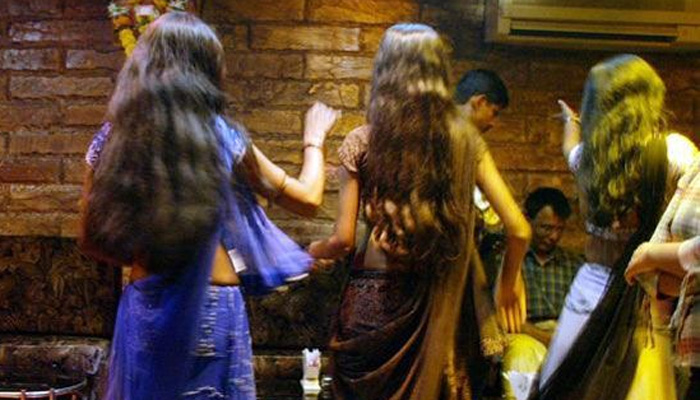-
Tips for becoming a good boxer - November 6, 2020
-
7 expert tips for making your hens night a memorable one - November 6, 2020
-
5 reasons to host your Christmas party on a cruise boat - November 6, 2020
-
What to do when you’re charged with a crime - November 6, 2020
-
Should you get one or multiple dogs? Here’s all you need to know - November 3, 2020
-
A Guide: How to Build Your Very Own Magic Mirror - February 14, 2019
-
Our Top Inspirational Baseball Stars - November 24, 2018
-
Five Tech Tools That Will Help You Turn Your Blog into a Business - November 24, 2018
-
How to Indulge on Vacation without Expanding Your Waist - November 9, 2018
-
5 Strategies for Businesses to Appeal to Today’s Increasingly Mobile-Crazed Customers - November 9, 2018
Showering cash on girls in dance bars a punishable offence
Mumbai: Money can not be thrown at women in Maharashtra’s dance bars, the Supreme Court said today, stressing, “It is against the dignity of women, culture and decency”.
Advertisement
Jayant Bhushan, senior advocate who is appearing for the association, said money was given to singers performing on stage and there was nothing wrong if people gave money to dancers. “A person watching a dance can not throw coins or currency in a way affecting someone’s dignified culture or decency”, the apex court told the petitioner’s senior advocate Jayant Bhushan, who had said the rule was discriminatory because it did not stop anyone from tipping a singer or a bar dancer.
Fixing further hearing on September 21, the Bench noted that restricting drinks in the dance area and installation of cameras in the dance area were contrary to the court 2014 judgment, permitting the CCTV cameras only at the entrance of the premises and not on the bar floors despite the court deeming it as an invasion of privacy.
“Supporting the government, Justice Misra said the court did not find this condition prima facie objectionable adding “.Throwing money at dancers affects the dignity of the women”.
Bhushan submitted that an “obscene” dance had been defined as “anything which aroused purirent intent of audience” and it was completely vague and subject to different interpretations. The Bench, however, did not agree with the condition on installing CCTV in bars as it said that such regulation is against the 2013 judgment.
Mr. Bhushan raised several other objections to the law, including installation of CCTVs in dance areas and how dance bar owners are liable to be imprisoned for three years for “abetment” of an obscene act while an obscene act attracts only three months jail under the Indian Penal Code.
“But money is handed over to singers during performance”. The court rejected the argument from Shekhar Naphade, lawyer for the Maharashtra government, that the petition should be sent to the Bombay high court rather than being heard in the apex court.
Advertisement
Senior advocate Rajeev Dhawan, appearing for the dancers’ association, argued that “why should we be held in captive employment in one place. They will perform 8 p.m.to 10 p.m.at one place, after that at another place” which is their “right”.





























